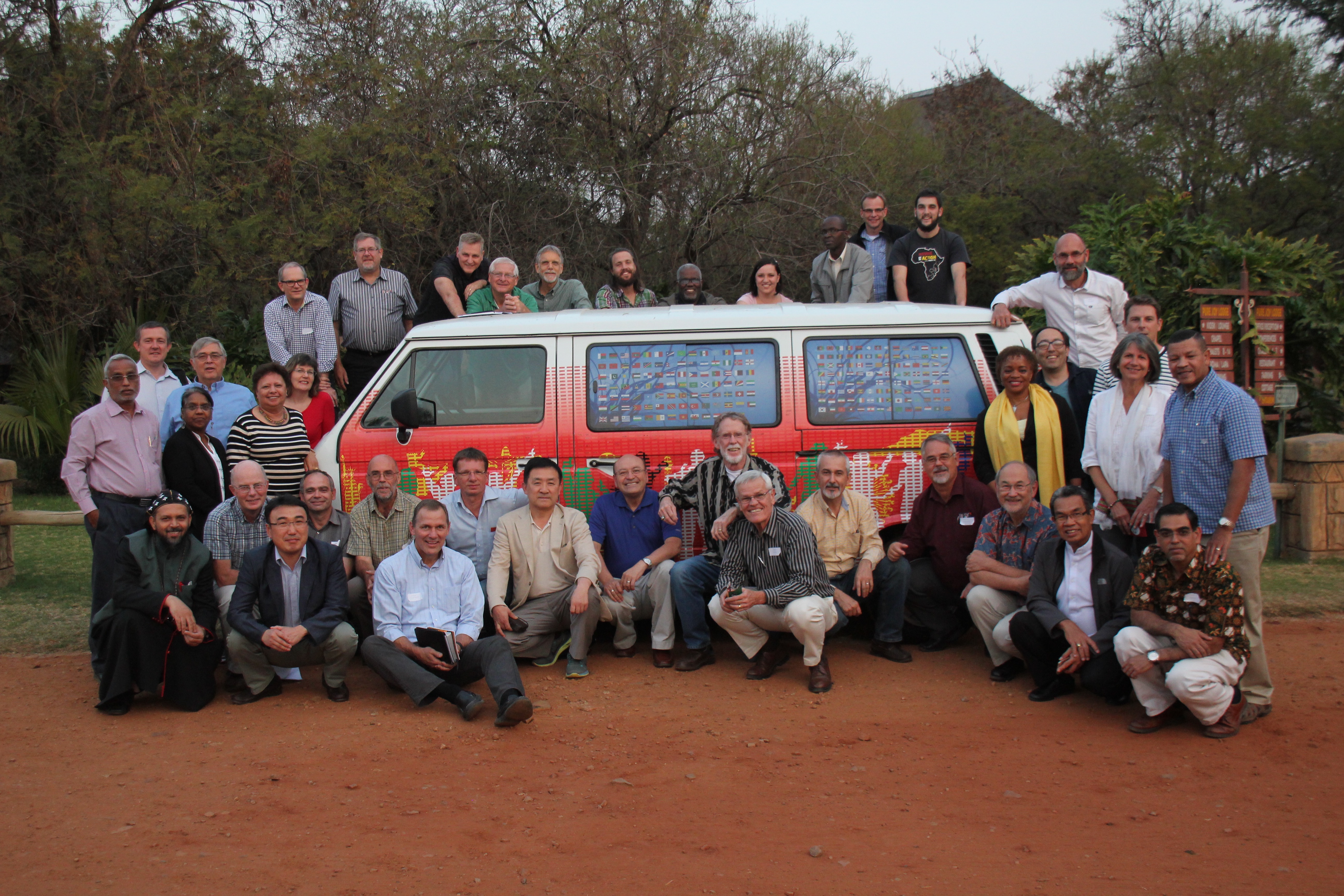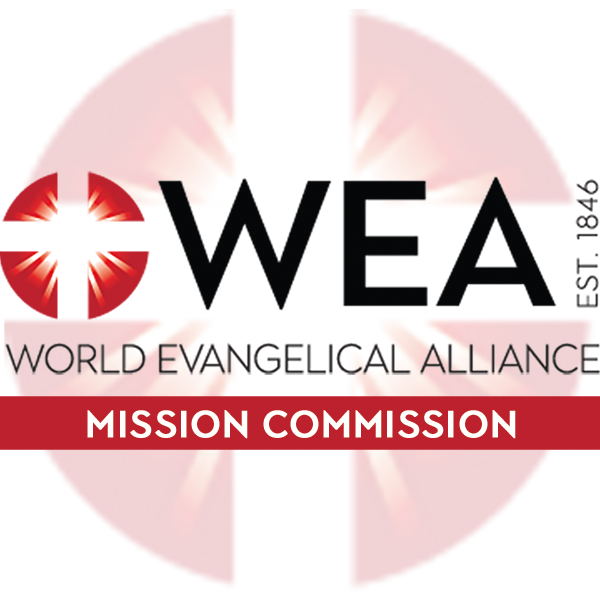MISSIONS IN A COVID CRISIS: ISM IMPLICATIONS
[30 Minute Read]
Dear fellow participants in God’s mission,
Grace and peace to you in the name of the Lord Jesus Christ.
1. Introduction
This essay summarises the findings of that consultation by understanding the impact of COVID on ISM globally, recognising what the Lord Jesus is doing. Finally, there are some suggestions for best practices and areas for strengthening ISM to the glory of God.
Our world has been irrevocably changed by the COVID-19 pandemic. Beginning with international students in China unable to leave campus since late January 2020, the epidemic-now-pandemic impacted ministries all over the world. From every angle, this has been a year of uncertainty and disruption. As 2020 draws to a close, the pandemic continues in second and third waves; the socio-political landscape reveals growing fault lines and fears. No wonder ISM leaders are struggling with the mismatch between old models and new realities, while organisations wonder if ISM is still a viable or meaningful ministry in a COVID-19 world.
How will organisations get out of the foggy, unpredictable and ambiguous context of a multiplicity of losses?
2. Global Fellowship
In a time of turmoil Jesus comforted his disoriented disciples, “Let not your hearts be troubled. Believe in God; believe also in me” (John 14:1). In the unity of the Spirit and under the lordship of Jesus Christ, the consultation participants enjoyed and expressed their biblical fellowship to love international students with the transforming gospel. Much was shared between ISM leaders regarding gaps in their ministries and wisdom gained. The consultation was valuable for hearing what was happening with ministry on the ground, appreciating the diverse issues in each context, and how leaders and organisations were wrestling with new realities.
3. New Normal
COVID-19 has thrust us into a VUCA environment which stands for Volatility, Uncertainty, Complexity and Ambiguity (sometimes also called Assumptions).[3] Not only does the pandemic keep hidden its future trajectory, but populations and policies impacting international students are changing in unanticipated and unpredictable ways. This essay will not address trends in international education per se, but trends in ministry amongst international students. The new (but evolving) normal is, frustratingly, not static. We don’t even know what we are adjusting to! It is a time of change, but the missio Dei remains unchanged.
The new normal necessitates a high reliance on digital technology not only for connecting and ministry with students but as the platform for team activities and ISM staff and volunteer training. How will volunteers and staff meet new students and establish connections in an online world? Ministries are faced with the online vs in-person tension. By necessity, or for convenience, some gravitate towards online modes of interaction, while others feel the human craving for real-life contact. How can ministries operate in this dual reality: technology being used effectively to bring people close who remain physically separate?
Throughout 2020 we have witnessed a decrease in globalisation together with a rise in nationalism, racism and social unrest. International students either live “always on” in the online world, or self-isolate behind the no-camera Zoom screen because of fear or fatigue. But underneath lurks the longing for human togetherness, community and in-person acceptance. Simultaneously the pervasive uncertainties appear to be driving students to ask even more the big questions of life.
The new normal—lower student numbers and less contact—begs the question, Is ISM still viable? Complicating the picture is the shift in international student population numbers and makeup, which is dynamic across regions, with some locations reporting more students year-on-year.[4] One person commented on scale and resources, saying that current models and systems will engage only up to 20% in any city in their region. So, even with reduced student numbers, there is still much gospel work to do! Therefore, ISM is indeed still a viable and meaningful ministry area.
How will organisations get out of the foggy, unpredictable and ambiguous context of a multiplicity of losses? Or can they? Is this temporary? When will we return to “normal”? COVID-19 prevention regulations, which restrict movement or contact, keep changing and governments continue to adjust visa requirements. Furthermore, a whole new category of international students is emerging: those studying online at a foreign university while residing in their home country. Should we consider these “international students” and how will we minister to them? Some organisations are still going through a phase of grieving the comfort and familiarity of tried-and-true ministry models. They are yet to enter the acceptance stage of healthily stepping into new uncharted waters. It’s just plain hard. These tensions take their emotional toll on leaders, staff, volunteers and Christian international students.
For the global Church to faithfully fulfil the God-given privilege of loving the stranger in our midst, the worldwide ISM movement must recognise and engage with this new changing normal.
Ministries will do well to create a culture of innovation where leaders and workers are trained to be innovative.
4. Agility
To adapt successfully to the new dynamic normal, which is the VUCA environment, ISM leaders and organisations must be agile. “VUCA Prime” (pictured) is a four-part behavioural leadership response to counteract each of the four VUCA elements with a different VUCA: increased Vision, Understanding, Clarity and Agility.
Understanding the realities and opportunities is also essential. We are seeing “ISM without borders”—old boundaries now fallen thanks to the on-ramping of digital ministry. The geographical “border” of ministering to students in one city or area has disappeared for one can now reach any student anywhere. Ministries that focused on one ethnic group which have seen those student numbers evaporate could diversify right where they are. Or they could keep their ethnic focus but expand to include students in other cities or countries, even non-transient students in the sending country. The ‘onlining’ of ministry can be exciting, but it can also blur the vision. Organisations must be clear on their vision and they must work in harmony with others.
Ministries will do well to create a culture of innovation where leaders and workers are trained to be innovative. One participant wrote, “The complexity of the current situation may have revealed our outdated structure in our ministry and there are gaps in leadership readiness, dynamic resources allocation, and the need for smaller agile teams.” The dynamic environment demands new ideas, new ways of thinking, new paradigms. We need to be amphibians working in “hybrid” ministries, comfortable with the changing landscape and tensions of an online world. The pandemic crisis is a gift from God to spur on wise changes, to help people think in new ways. The demand for innovation means identifying those in an organisation who are gifted in that way and bringing them to the table, re-training for innovation and recruiting those naturally inclined to think outside the box.
Innovation is not only for ministry structures and models but also for cross-organisational networking and strategies. Thankfully in the ISM space, we have seen more leaders connecting, a significant increase in prayer and renewed passion for integral mission. Silos within organisations slow innovation, because silos isolate leaders and teams from one another, such that they function exclusively within their own boundaries. Cross-silo leadership and mutuality will build meaningful and rewarding connections within and between organisations.[5]
The pandemic has only exacerbated the us/them divide, the distance between locals and foreigners.
Before this year, we had already witnessed the emergence of non-Western destinations for international education. China has been on the rise for some time, and other contexts such as Malaysia, India and the Philippines have seen growth. Cultural homogeneity, non-English speaking context, students’ expectations of non-Christian host countries and non-Judeo-Christian cultural heritages have meant that even before COVID-19, different sets of issues arise when it comes to the establishment and indigenisation of ISM outside the West. The pandemic has only exacerbated the us/them divide, the distance between locals and foreigners. Unlike established ISMs in the West, ministries in new regions are not only establishing themselves but also now dealing with pandemic-related pressures.
The global ISM movement will do well to be sensitive to the unique challenges in non-Western contexts, including the complex path of local church involvement. In Latin America we have seen both a need but also a growing collaboration between churches and para-church organisations in the ISM field. Conversely, in some Asian contexts it is sensitive, even illegal, to invite churches to participate in ISM. So, some assumptions about collaboration as the key paradigm and model for ISM work are questionable and even uncomfortable in some parts of Asia. How can theology and contextualised missiology provide sound models for ISM where church involvement is not straightforward? We must leverage new efficiencies and connectedness within the ISM global community to support new ministries in these challenging contexts. The consultation called for regular interactions for ISM workers to exchange best practices from various contexts and suggested the idea of regional ISM consultations.
If nothing else, the pandemic has reminded us of our frailty as creatures in a sin-sick world.
5. Care
If nothing else, the pandemic has reminded us of our frailty as creatures in a sin-sick world. Under “caring for people” the consultation identified needs and responses appropriate to this season of weakness. Addressing the pastoral care of international students is both a great need and a great opportunity.
The economic, social and emotional needs of international students and their dependents have spiked. Mental health challenges have become all too common and isolation leads to loneliness and depression in some students. Health and hygiene issues compound the fear of the foreigner, resulting in new personal boundaries. This means some modes of in-person ministry, previously open to ISM workers, are now sadly not permitted. Similarly, the spread of COVID-19 outside of Asia means that non-Asians in Asia are seen with suspicion as potential spreaders to be avoided, feeding the pre-existing xenophobia so prevalent already. Studying online, perhaps even in a time zone different from their place of enrolment, disrupts normal habits of sleeping and eating. Under the sovereignty of God, the pandemic in 2020 has come hand-in-hand with destabilising racial tensions, geopolitical aggression, terrorism in Europe, and notable unrest in Nigeria and Ethiopia. Any ministry among international students must recognise and attend to these felt needs because they are pathways to deeper questions and meaningful relationships.
Many of the difficulties mentioned above also impact ISM workers, and member care was highlighted in the consultation as a critical need. By “ISM workers” we mean paid staff or volunteers ministering amongst international students. These face the stressful uncertainty of employment, the effects of “Zoom fatigue”, the refusal to meet from previously friendly students, fragmentation of teams and the questioning of the whole enterprise. ISM leaders need to care for their people by understanding these pressures and accommodating them. In late October, ACMI in North America organised a virtual retreat specifically to care for ISM workers.
ISM leaders also require this care, as they face the additional burden of being brokers of information, the nexus between organisations, and most importantly leaders who champion the inspiration of a sound vision. There is a need for higher-end organisational support, which in our new online-capable and borderless world can happen much easier. The informal exchange of ideas between ISM innovators and thought leaders will be mutually enriching and yield long term benefits.
The familiar and effective methods of eye contact and smile have been stripped away. Investing time and money in social media to reach new students has yielded poor results.
6. Ministry Models
The courage and agility to reassess and reinvent ministry models was a clear theme at the global consultation. At the head of this challenge was the simple question, How can new students be met and welcomed in a context of social distancing, mask-wearing and often fully-online registration and orientation? The familiar and effective methods of eye contact and smile have been stripped away. Investing time and money in social media to reach new students has yielded poor results. In response to all this, some organisations have focused on establishing contact with new students through existing networks and relationships—via the still present international students or departed returnees. This indirect contact facilitated through trust may end up being more fruitful.
Another emerging idea was to experiment with “scrappy” ways of connecting. One example is to host small gatherings by word-of-mouth in parking lots next to student residences, where social distancing is honoured but students can still receive a welcoming smile in person. This notes a shift more generally toward small group equipping and small-scale community.
Again, on the topic of local church mobilisation, some ISMs are looking to more intentionally involve churches from the same ethnic background as new students, both to advise on strategic ways to connect and to actually do that by reaching out themselves. These locally present and culturally familiar relationships may help international students to have “both feet on the ground” in their new educational context, rather than being torn by a heart always at home, tethered there by an always-on social media stream.
As ministries gain a deeper understanding of students’ needs, they’ll be better equipped to meaningfully and sensitively connect with new students. This will have a direct flow-on effect of helping ministries to establish or increase their legitimacy in the eyes of the educational system. Imagine, “Your organisation has something valuable to offer our international students, so we invite you to the table to discuss and execute practical and pastoral care to them.” What an invitation!
Fewer numbers of students, plus this holistic engagement, facilitates pastoral care and provides a context for deeper discipleship of students already known. Christian formation and ministry training for international students can perhaps go to new heights with more ministry energy across fewer relationships.
In the messy rush to establish effective means (often digital) to connect with international students, the consultation voiced the need to “stick to the basics” of ministry. That means relying on the Bible as the bread and butter of discipleship ministry with constant prayer, both done and modelled. ISMs must not just “hold out until it’s all back to normal” and bury their heads in the sand but must embrace the challenges and the opportunities within the digitisation of relationships.
Utilising digital technologies can help ISMs to streamline ministry training, conquering the distance, through mentoring, coaching and training on Zoom. Students and their families have become comfortable with digital communication which also opens the door to powerful and effective relationships with students’ parents and families back home. The vital work of returnee ministry, which involves both equipping international students for re-entry and aiding with (re)integration in a Christian community, also benefits from the ease of online communication.
We come back to prayer again and the bedrock of daily dependence on the Lord Christ.
7. Foundations
In the tumult of a COVID-19 ravaged 2020, the consultation participants noted the essential need to strengthen our foundations as a movement. Even prior to now, we have witnessed a healthy uptake in prayer within this movement. This makes explicit our commitment to the Lord of the Harvest who does the will of his Father, who receives all who come to him, who establishes and brings down kingdoms, who cares for the broken-hearted and builds his church. Ministry to international students must not, on any account, come loose from our joyful obedience to Christ Jesus who gave himself up for us and commands us to share the gospel with every person in every place.
Indeed, the Lord God Almighty is still sovereign and at work. And international student ministries could do well to reflect on the theology of hope. In the face of discouragement and disillusionment, unprecedented change, disruptive and patternless situations, what does the gospel of hope have to say to ISM leaders, workers and volunteers? In the face of racial fear and fragmentation, how does the gospel of peace touch our ministry area? How does a theology of diversity address racism and xenophobia biblically? In a world sick and dying from this new virus, what is the biblical interplay between safety, risk mitigation, courage, sacrificial self-giving love and picking up one’s cross daily? As climate change continues unabated, and global poverty worsens, where is a theology of creation care and integral mission? International students themselves will be asking these questions. Such questions open the door to much deeper discipleship from outward-facing Christians in host countries.
We come back to prayer again and the bedrock of daily dependence on the Lord Christ. Ministry to, with and beyond the diaspora of international students can only bear fruit if ISM workers lean into the leadership of the Spirit as we are “struggling with all his energy that he powerfully works within [us]” (Col. 1:29).
8. Future Action
The following suggestions are offered for future action to support ISM globally.
- A series of theological and practical papers on ISM in a COVID world.
- An annual online global ISM consultation, perhaps in person every 3 years, for fellowship, networking at the global level, and sharing of wisdom and best practices.
- A consultation at the Asia regional level, or for emerging non-traditional ISM contexts. This will aid the regionalisation of ISM for mutual support.
- Workshops based around common issues and needs in ISM. A clear distinction should be drawn between training/webinar (content delivery with minimal interaction), workshop (some content but mostly facilitated and directed co-learning), and consultation (minimal content, mostly seeking input from attendees).
Footnotes
- WIN stands for Worldwide ISM Network which is an issue group within the Lausanne Movement. The WIN Catalysts are Yaw Perbi, Francina de Pater, and Phil Jones.
- Representatives from Tanzania, Argentina, Mexico, US, Canada, Australia, New Zealand, India, Malaysia, Japan, China, Singapore, UK, Germany, Netherlands. The WEA Mission Commission (WEA MC) Executive Director was able to participate, as WIN is a “docked network” with WEA MC.
- From Kirk Lawrence, Developing Leaders in a VUCA Environment, UNC Kenan-Flagler Business School. https://www.emergingrnleader.com/wp-content/uploads/2013/02/developing-leaders-in-a-vuca-environment.pdf (2013).
- One example is the University of Amsterdam reporting a 22% increase on new international student enrolments this academic year. Bijl, Hanna “Fors meer inschrijvingen Amsterdamse universiteiten”, https://www.parool.nl/amsterdam/fors-meer-inschrijvingen-amsterdamse-universiteiten~bb2263d2/
(30 October 2020). - Tiziana Casciaro , Amy C. Edmondson and Sujin Jang, “Cross-Silo Leadership” Harvard Business Review. https://hbr.org/2019/05/cross-silo-leadership (May-June 2019).
Pray
- For international students’ emotional and mental well-being, especially for those locked-down in foreign lands with only distance communication with home available. Pray that their prayers for help will be answered by Christ-followers nearby. Pray God’s protection around those frightened by xenophobia and that the peace of Christ will calm trauma.
- For international student ministry staff and volunteers as they reach out to encourage and bless international students in innovative ways in spite of the difficulties and distancing. Pray for supernatural connections online between believers and students seeking friendship and meaning through this crisis.
- For wisdom for the Worldwide ISM Network leaders as they champion ISM as a strategic opportunity to bring people from many nations into God’s holy community in Christ.
- That churches will release people into ISM outreach and welcome international students into their families and church community.
- For funding required to support ISM ministers and ministries, for resources to learn and use new technologies and surplus funds to invest in the lives of international students.









